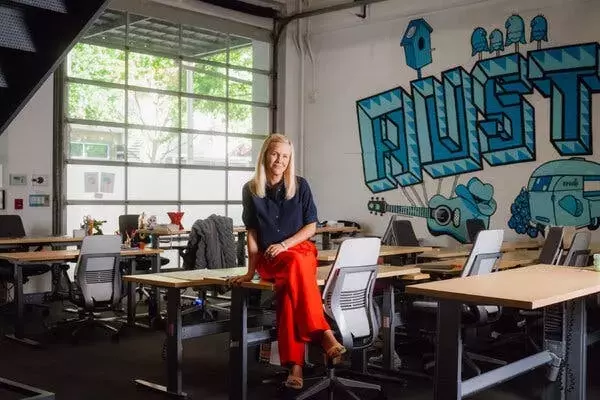








Unleash Potential: AI Pioneers the Future of Learning
The Genesis of an AI-Driven Educational Model in Austin's Tech Hub
In the vibrant tech landscape of Austin, Texas, where industry giants converge, a novel educational concept is taking root, impacting the children of the city's tech elite. This innovative approach centers on artificial intelligence as the cornerstone of learning. Alpha School, a high-priced private institution based in Austin, is spearheading this movement and is set to broaden its reach across the nation this autumn, introducing its distinctive model to more cities.
Visions for the Future of Learning: Proponents and Critics Weigh In
Proponents of Alpha School champion its AI-driven methodology for its capacity to customize education, catering to each student's distinct proficiencies and passions. MacKenzie Price, a co-founder of Alpha, has controversially described traditional classrooms as "the next global battlefield," asserting that the future of education, driven by AI, is not a distant concept but an immediate reality. However, critics view Price's "2 Hour Learning" framework and Alpha School as merely the latest in a series of technology-driven trends that they argue tether children to screens, potentially hindering vital social skill development and critical thinking abilities. Randi Weingarten, president of the American Federation of Teachers, voices concerns that an exclusively AI-based school might compromise the fundamental human interaction crucial to the educational process.
Alpha School's Expanding Footprint Across the Nation
Despite these criticisms, AI's presence in education is rapidly expanding, mirroring the proliferation of chatbots. Alpha School has already established campuses in Miami and Brownsville, Texas, the latter near Elon Musk's SpaceX facility. The school's next phase of growth aims to introduce its educational framework to over a dozen additional U.S. cities, including major hubs like New York City and Orlando, Florida. Price advocates for the adoption of this change by both parents and teachers, especially following a presidential executive order endorsing AI in schools.
The Distinctive Educational Approach: AI-Enhanced Learning and Expert Guidance
At Alpha's primary campus, students dedicate a mere two hours daily to core subjects such as reading and mathematics, facilitated by AI-powered software. The remaining school hours are structured around developing practical competencies in areas like entrepreneurship, public speaking, and financial literacy, with support from AI and human "guides" rather than traditional teachers. Byron Attridge, a student at Alpha, shared his satisfaction with his accelerated academic progress, noting that the individualized pace allows him to advance without being constrained by peers or a fixed curriculum. Founded in 2014 by Legacy of Education, a for-profit entity, Alpha School has grown from 16 students in a rented house to approximately 200 students from kindergarten to eighth grade and an additional 50 high schoolers across two campuses in central Austin. Tuition at the Austin campuses is $40,000 annually, while guides reportedly earn six-figure salaries. School officials have announced that over a dozen new schools will commence operations this fall, with several initially renting space from other private schools and enrolling around 25 students in their inaugural year.
Tailored Instruction and Enhanced Engagement: The Dual Role of AI and Human Guides
Alpha's administrators and guides contend that their diverse AI programs customize instruction to each child's specific needs, departing from a one-size-fits-all approach. This personalization allows educators to concentrate on students' emotional well-being. Price, who became disillusioned with her daughter's public school experience, refutes the notion of Alpha being merely a "screen school," emphasizing that students engage in collaborative workshops for most of the day. Guides highlight that AI-led lessons free them from time-consuming tasks such as lesson planning and grading, enabling them to focus on student motivation. Price asserts that motivation accounts for "90 percent of what creates a great learning experience," underscoring its importance in fostering effective learning.
The Broadening Horizon of AI in Education and Public Sector Engagement
Alpha's expansion coincides with a surge in AI investments across various sectors, including education. The Miami-Dade County Public Schools, the nation's third-largest district, has educated over 1,000 instructors on new AI tools and is implementing Google chatbots for more than 105,000 high school students, marking the most extensive U.S. school district deployment of its kind to date. Alpha is also endeavoring to establish a public-school charter network, Unbound Academy, with Arizona launching a virtual AI charter school in collaboration with Alpha this autumn, representing Alpha's initial foray into the public education system.
Concerns and Critiques: The Uncharted Territory of AI in Public Education
Conversely, some school districts have resisted AI, quickly blocking chatbots from school devices due to cheating concerns. Certain educators have appealed to state legislators for intervention, fearing job displacement by AI software. While Alpha's tuition and tech-sector appeal might attract affluent students, its founders claim measurable success. However, direct comparisons between public and private educational outcomes are challenging, as private schools often benefit from a student body from wealthier, well-educated families. Alpha's initiative for Unbound Academy has faced skepticism, with state education boards in Pennsylvania, Texas, Utah, Arkansas, and North Carolina rejecting the program, citing insufficient evidence of its efficacy. The Pennsylvania Department of Education, for instance, noted "multiple, significant deficiencies" and the untested nature of the proposed AI instructional model.
Balancing Personalized Learning with Social Development
While Alpha emphasizes collaborative opportunities, some middle school students have opted to leave for high school to engage in team sports, student council, and prom, suggesting a desire for broader social experiences. Justin Reich, director of the Teaching Systems Lab at MIT, questions the school's focus on rapid academic advancement, highlighting that the purpose of education should also be to foster citizenship and democratic engagement. While other schools adopt AI as a supplementary tool, Alpha integrates it as the primary driver for academic content. In the afternoons, Alpha students engage in project-based learning, such as wilderness training, cooking, and sports, fostering interaction and practical skills. For instance, fifth and sixth graders learned budgeting, business planning with chatbot assistance, and cooking while creating a food truck, developing crucial collaborative and problem-solving skills.
Personal Testimonials and Future Aspirations: The Impact of Alpha's Approach
Bret and Robyn Siers moved from Los Angeles to Austin post-pandemic to enroll their twin sons, Lukas and Jaxon, in Alpha, impressed by the school's ability to foster independence and cater to unique learning styles. They noted Lukas's enhanced confidence through nonacademic achievements, such as chess. Alana and Peter Ackerson, both from the tech industry, also relocated to Austin to expose their daughters to AI education at Alpha. Alpha's first graduating class saw 11 of 12 seniors matriculate into four-year universities, including Stanford, Vanderbilt, the University of Texas at Austin, and Northeastern, with the twelfth pursuing a career as a professional water skier. Alpha high school students particularly value their "masterpieces," intensive projects aligned with their passions. These projects encourage students to go beyond AI's knowledge base, fostering unique, novel perspectives. As 16-year-old Alex Mathew states, this ability to develop "spiky points of view" is the true differentiator in the age of AI, signifying an endeavor to surpass AI's capabilities.
